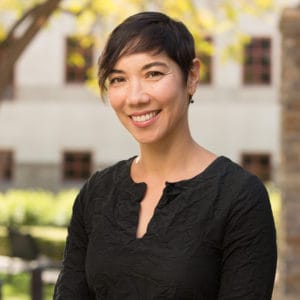Faculty
-

Lucia Cantero
Assistant Professor of Cultural Studies
Research Interests
Consumer culture, social media, algorithms and data science, infrastructures and urban public space
-

Deshonay Dozier
Assistant Professor of Cultural Studies
Research Interests
Black studies, urban geography, policing and carceral studies, abolition studies, cultural studies, indigenous studies, racial capitalism.
-

Joshua Goode
Professor of Cultural Studies and History
Chair, Cultural Studies DepartmentResearch Interests
Modern Spain, 19th- and 20th-century Europe, Genocide and racial thought, Museums and commemoration, Memory
-

David Luis-Brown
Associate Professor of Cultural Studies and English
Research Interests
Hemispheric Americas studies, Latino/a/x studies, Black diaspora studies, American literature and culture
-

Darrell Moore
Visiting Associate Professor of Cultural Studies
Philosophy Teachout CoordinatorResearch Interests
Aesthetics, Africana Intellectual Thought, Critical Theory, Continental Philosophy
-

Eve Oishi
Associate Professor of Cultural Studies
Research Interests
Cultural studies, Media studies, Feminist and queer theory, Asian American studies
Extended Faculty
-
Elizabeth Affuso
Pitzer College
Research Interests
Spectatorship, Fandom, Branding, Technology, Architecture, Moving image media art, Reality television
-
Myriam Chancy
Scripps College
Research Interests
African diaspora with specialization in its literature
-
Jih-Fei Cheng
Scripps College
Research Interests
Feminist and queer of color approaches to media representations of public health issues
-
Jennifer Friedlander
Pomona College
Research Interests
Cultural studies, Contemporary art controversies, Film theory, Psychoanalytic theory
-
Erin Runions
Pomona College
Research Interests
The intersections of biblical interpretation and political philosophies, with their multiple impacts on political subjectivity, gender, sexuality, U.S. national sovereignty, and biopolitics
Curriculum
Course Requirements
- One required writing class
- Three 300-level Cultural Studies foundation courses
Research Tools Requirement
- Research Methods course
Research Paper
- One substantive research paper
Special Program
In addition to earning an MA in Cultural Studies, you can complete a certificate program in Africana Studies or Women’s & Gender Studies.
Application Guidelines
| University Requirements | |
|---|---|
| Application Fee | $80 (fee is non-refundable) |
| Official Transcripts | Undergraduate/graduate |
| English Proficiency Exam | Required (international applicants only) |
| Resume | Applicants must submit an up-to-date copy of their resume. |
| Program Requirements | |
|---|---|
| Statement of Purpose | Please submit a 2-3 page statement of purpose that details your academic and/or professional achievements, your specific areas of research interest within your desired field of study, why you are a strong candidate for graduate studies at CGU, and your career goals. |
| Letter of Recommendation | 3 letters required |
| Standardized Test Scores | GRE (optional) |
| Writing Sample | All applicants are required to submit a writing sample of previous work in addition to the statement of purpose. You may submit samples of any length you feel indicate your writing ability, but please note that we will be unable to return any items submitted as part of your application (please, no books). Most applicants submit one or two scholarly papers or excerpts of around 10-15 pages. Writing samples should not exceed 30 pages. |
Key Dates & Deadlines
CGU operates on a priority deadline cycle. Applicants are strongly encouraged to submit complete applications by the priority dates in order to assure maximum consideration for both admission and fellowships.
Once the priority deadlines have passed, the University will continue to review applications for qualified candidates on a competitive, space-available basis. The final deadlines listed are the last date the University can accept an application in order to allow sufficient time to complete the admissions, financial aid, and other enrollment processes.
Spring 2025
Priority Deadline – November 1, 2024
Final Deadline (International) – November 15, 2024
Final Deadline (Domestic) – December 1, 2024
Classes begin – January 21, 2025
Fall 2025
Priority Deadline – February 1, 2025
Final Deadline (International) – July 5, 2025
Final Deadline (Domestic) – August 1, 2025
Classes begin – August 25, 2025
Cost & Aid
Tuition and Fees
ESTIMATED TUITION (CALIFORNIA RESIDENTS, NON-RESIDENTS, INTERNATIONAL)
| Program | 40 units |
| Tuition per unit* | $2,020 |
*Based on 2024-2025 tuition rates.
STUDENT FEES (PER SEMESTER)
| $245 Student Fee |
| $150 Technology Fee |
| International Student Services Fee*: $661 fall semester, $776 spring semester **Applies to all international students (F-1 visa only) who are registered in coursework, doctoral study, or continuous registration. The fee is assessed each fall and spring semester for annual ISO accident and sickness plans and administrative fees. Subject to change. |
For estimates of room & board, books, etc., please download CGU’s Cost of Attendance 2024-2025.